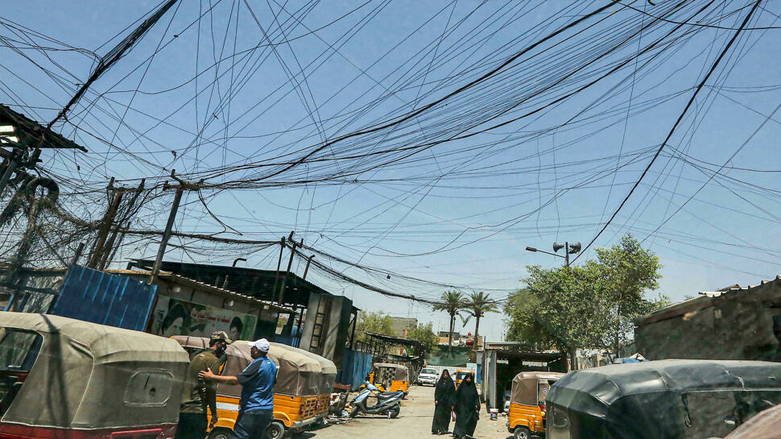U.S. belatedly issues Waiver for Iraqi Energy Imports from Iran, as it also promotes Iraq’s Energy Independence

WASHINGTON DC, United States (Kurdistan 24) –Speaking to journalists on Wednesday, State Department Spokesperson Matthew Miller affirmed U.S. support for energy independence in Iraq, while he also explained some details regarding the latest U.S. waiver allowing Iraq to import energy from Iran.
To a significant extent, Baghdad has become dependent on energy imports from Iran in order to meet the country’s demand for electricity, particularly in the scorching summer months.
Around the world, this has been a particularly hot summer, and Iraq is no exception. Indeed, the excessive heat, along with the failing state of Iraq’s energy infrastructure, has political implications.
As CNN reported on Tuesday, “Iraq continues to suffer power cuts in [an] extreme heatwave,” while earlier this month, “hundreds of Iraqis took to the streets” to protest electricity cuts amid the rising temperatures.
Belated U.S. Waiver
On Tuesday, Washington issued yet one more waiver to allow Iraq to purchase electricity from Iran. The waiver is for 120 days, and State Department Spokesperson Matthew Miller explained that it was the 20th time that the U.S. had issued such a waiver.
But it was issued belatedly—after Iran had cut off the supply of gas to Iraq, “triggering severe power shortages,” as the Associated Press reported last week.
Iraq responded to the Iranian move by arranging a swap: Iraqi oil for Iranian gas. Iraqi authorities maintained this did not violate U.S. sanctions on Iran, because it did not involve any payment of money.
They might also have said: What else do you expect us to do? We must produce electricity to deal with the heat, and for that, we need Iranian gas.
Asked about that deal on Wednesday, Miller replied in neutral terms. “We continue to review” the oil-for-gas swap, he said, “including in relation to our current sanctions.”
“We continue to implement all U.S. sanctions on Iraq,” he added.
U.S. Support for Iraq’s Energy Independence and Energy Sector Modernization
But Miller also pointed to what is the ultimate way of resolving this problem.
“We strongly support Iraq’s path to energy autonomy and efforts by the Iraqi Government to improve essential services,” Miller stated.
Earlier this month, Baghdad signed a major deal with the French oil conglomerate, Total Energies. The project would end Iraq’s practice of flaring the gas that is produced in the process of extracting oil, and make it, instead, available for Iraq to use.
On July 11, as the agreement was signed, Miller issued a statement hailing it. “We compliment Iraq and Total Energies on the signing of a $27 billion energy deal that will accelerate Iraq’s path to energy self-sufficiency and advance Iraq’s collective climate change objectives,” it said.
Miller’s statement also explained the far-reaching objectives of the deal. In addition to minimizing “the current practice of gas flaring by capturing the massive amounts of methane being burned away,” the Total Energies project includes a water desalination facility to “enhance oil recovery, while reducing the burden on Iraq’s fragile fresh water sources.”
It also includes “a one-gigawatt solar farm” that “will launch Iraq’s transition to renewable energy production,” the statement said.
In short, it appears that Baghdad’s agreement with Total Energies is a much-needed, long-delayed contract that will provide for the far-reaching repair and modernization of Iraq’s ailing energy infrastructure, and, in the process, eliminate Iraq’s need to import energy from Iran.
